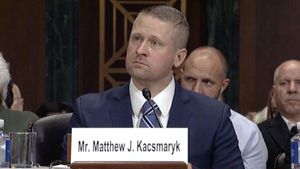Over the next five years, 10 research organizations looking to end HIV will receive a split of $53 million dollars annually from the National Institutes of Health.
Part of that funding will go toward the Martin Delaney Collaboratory of AIDS Researchers for Eradication (CARE). The group will receive $5.2 million for each of the five years. It’s led by University of North Carolina School of Medicine professor and director of the UNC HIV Cure Center, Dr. David Margolis.
CARE began in 2011. The Collaboratory seeks to speed up the discovery of an HIV cure by bringing researchers, private sector companies, and government officials together to share resources, data, and methods.
The money will help CARE expand its work to also include expertise toward a better understanding of persistent HIV transmission, the discovery of novel approaches to disrupt HIV latency, methods to clear the HIV reservoir, and identification of strategies to control the viral rebound, according to a university press release.
“We will continue to pursue our central unifying hypothesis that reversing HIV latency will ultimately lead to eradication of persistent HIV infection,” Margolis said. “We will also pursue interventions to prevent rebound of viremia after interruption of antiretroviral therapy (ART), and we will leverage a broad portfolio of tools from both academic and industry partners, and apply new discoveries, demonstrating proof-of-concept for clinical initiatives.”
CARE has already been involved in what could be significant advancements in finding a cure for HIV. While people taking antiretroviral drugs can suppress HIV to undetectable levels in the blood, HIV is still present in the body through what is called latently infected resting CD4+ T cells. Researchers at UNC CARE created a compound to activate those CD4+ T cells, which the antiretroviral drugs then could target. A partnership between UNC-Chapel Hill and ViiV Healthcare will begin a study on a similar compound for humans.
CARE was named after the late HIV activist Martin Delaney. Delaney served on The National Institute of Allergy and Infectious Diseases‘ AIDS Research Advisory Committee.
Other research entities receiving NIH windfalls include Johns Hopkins University in Baltimore, Temple University in Philadelphia, and Atlanta's Emory University.








































































